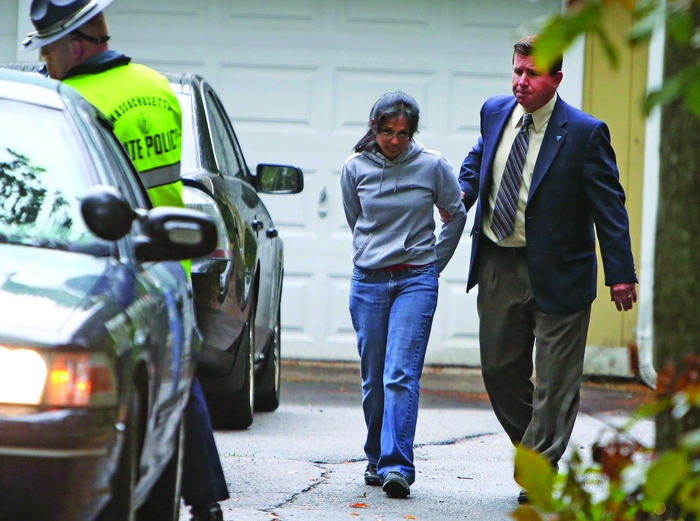The Fukushima of Forensics: Annie Dookhan has been covered here before:
- Yet another crime lab scandal — the real question is how many failures until they get caught and when is enough enough?
- The poster child for everything that is wrong in forensic science: Annie Dookhan
- The Fukushima of Forensics: Annie Dookhan
- What to do with 60,000 cases involving Annie Dookhan?
- More on Annie Dookhan: Three cheers to the Boston Globe
- Why Confrontation of the Particular Witness must be mandatory: Annie Dookhan
- The catalyst for change: The Annie Dookhan episode

Now Chemical & Engineering News is weighing in on this disaster.
Chemist Charged In Crime Lab Scandal
Forensics: Thousands of drug samples tested by Annie Dookhan could be in questionPolice last Friday arrested a Massachusetts forensic chemist who allegedly tampered with drug evidence in criminal cases, forged colleagues’ signatures, and faked her academic credentials while working at a state crime lab. The unfolding investigation, which could upend thousands of narcotics convictions, has already led to the shutdown of the lab and the resignation of the state public health commissioner who oversaw it.
Annie Dookhan, 34, was charged with obstructing justice by lying about the integrity of evidence as well as about her academic qualifications. She is thought to have tested some 60,000 drug samples during her career at theWilliam A. Hinton State Laboratory Institute, a state crime lab. “Annie Dookhan’s alleged actions corrupted the integrity of the entire criminal justice system,” Massachusetts Attorney General Martha Coakley said at a press conference.
According to a police report obtained by the Boston Globe, Dookhan told investigators that she forged coworkers’ initials on calibration reports for mass spectrometers, intentionally contaminated samples, and engaged in “dry-labbing”— identifying narcotics by sight rather than by chemical analysis. In interviews with police, several colleagues said they’d expressed concern to supervisors about Dookhan’s unusually high productivity. Her résumé lists a master’s degree in chemistry from the University of Massachusetts, Boston, but she does not hold that credential according to school officials.
“This is a calamity,” says Justin J. McShane, a defense attorney in Harrisburg, Pa. Because the evidence Dookhan allegedly mishandled was more than likely destroyed in the normal course of business, no traceable information exists to correctly characterize samples in thousands of drug cases, he explains.
“I don’t think this is going to end with a single chemist,” adds Edward P. Ryan Jr., former president of the Massachusetts Bar Association. Dookhan’s supervisors at best signed off on her work and at worst were complicit in her alleged crimes, he says. “This is an ever-expanding spider web, and I don’t know where the end is going to lie.”
Dookhan is an ACS member and a member of several ACS divisions, including the Division of Chemistry & the Law. Sarah P. Hasford, chair of the division, tells C&EN that it is a policy of the division not to comment on any pending litigation matters.
Dookhan pleaded not guilty in Boston Municipal Court Friday and was released on $10,000 bail. E-mails and phone calls to Dookhan have not been answered. Another hearing is scheduled for Dec. 3.


